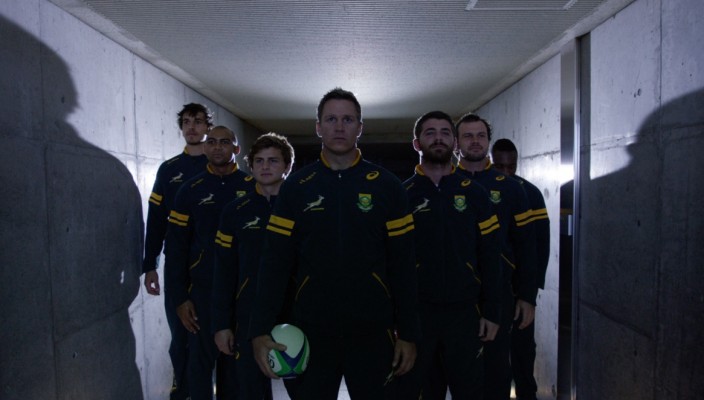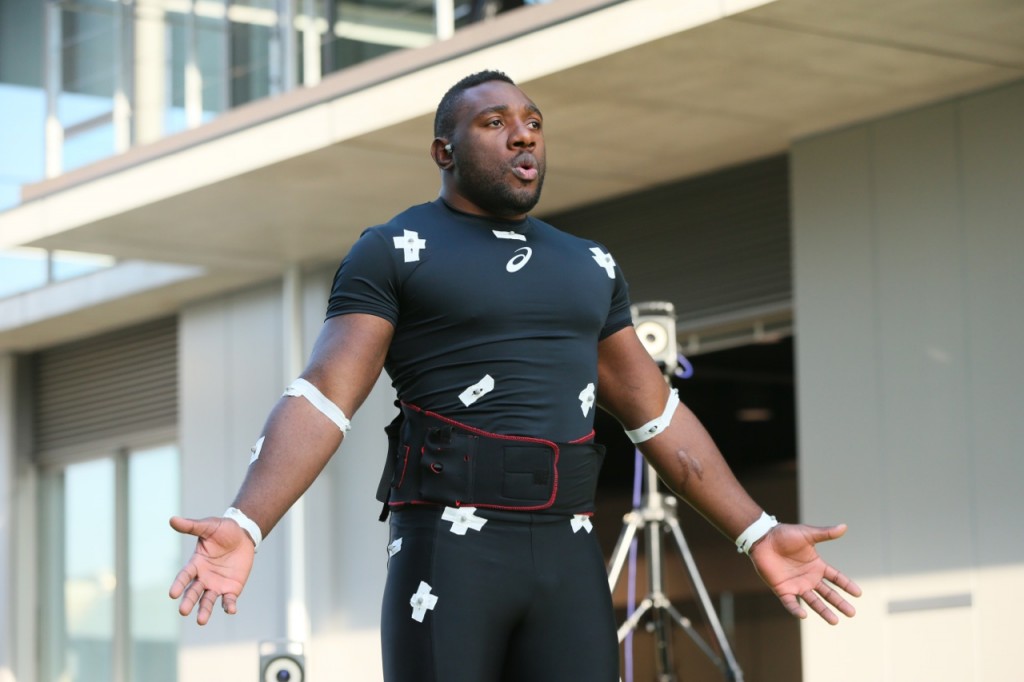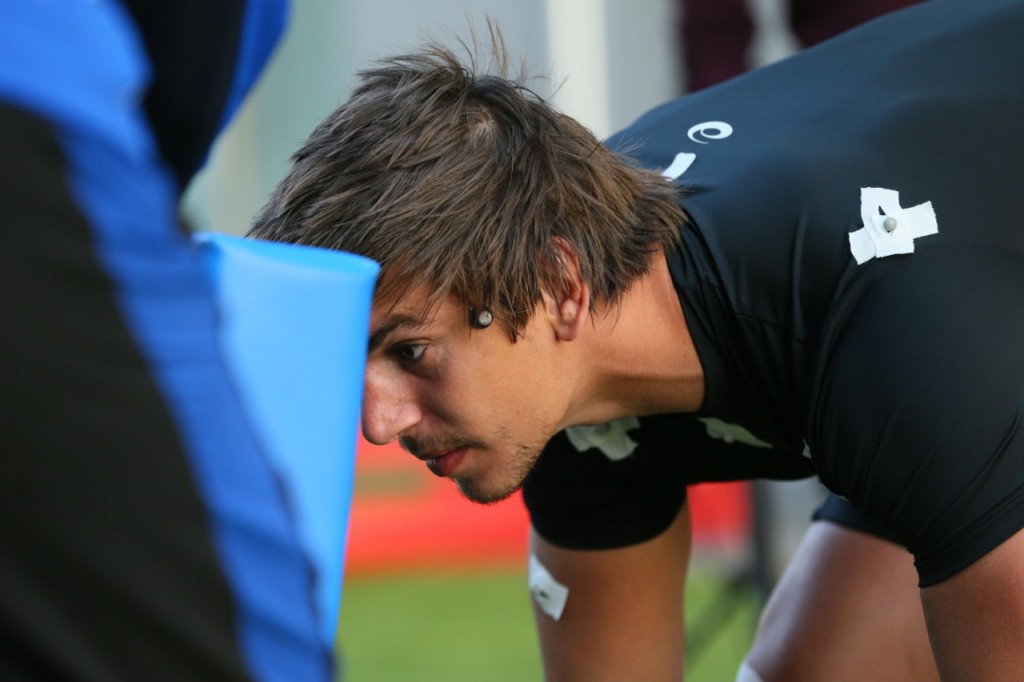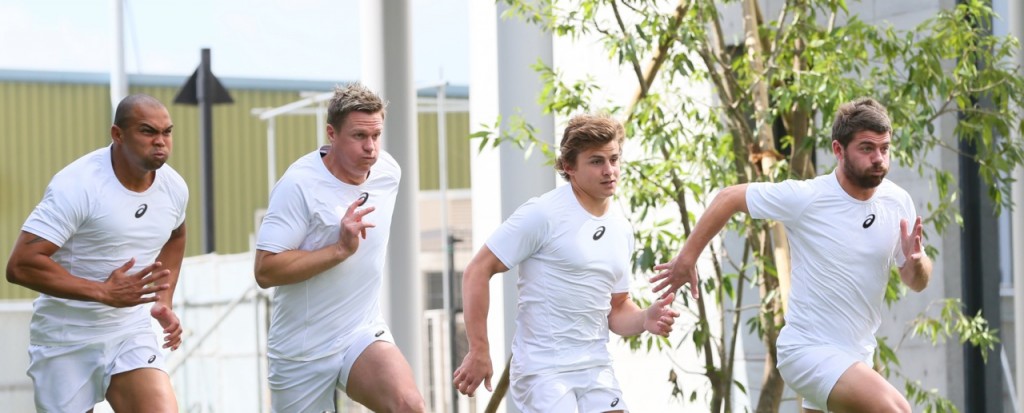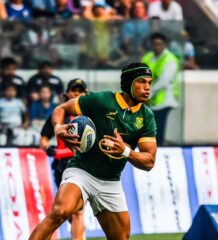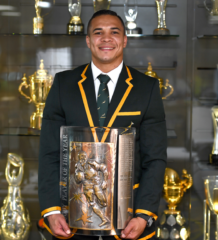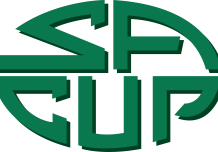Springboks visited ASICS Institute of Sports Science to undergo World Cup testing
As the Springboks landed in Europe ready for the Autumn International series ASICS revealed that the team visited the ASICS Institute of Sports Science in Kobe, Japan, to undergo special performance and apparel testing ahead of an important year.
As the Official Technical Kit Sponsor to the South African Rugby Union (SARU) including the Springbok Rugby Team, ASICS is working closely with SARU to build a strong competitive advantage ahead of the Rugby World Cup 2015.
Ahead of the upcoming Autumn Internationals ASICS ambassadors Tendai Mtawarira and Eben Etzebeth, were joined by Jean de Villiers, Bismarck du Plessis, Duane Vermeulen, Patrick Lambie, Willie le Roux and Cornal Hendricks, as well as Head Coach Heyneke Meyer on the five day trip to gain insight into what ASICS can provide.
The exact details of the testing and development of the new Springboks jersey won’t be revealed until it’s launched in 2015, but ASICS is committed to providing the Springbok team the best chance of achieving success at Rugby World Cup 2015 and onwards by giving them a competitive advantage.
“The trip to Japan was very special, we had a great time and really enjoyed our stay in Kobe, as well as experienced a new culture,” said Tendai ‘The Beast’ Mtawarira. “The one thing that stood out for me was the ASICS Institute of Sports Science, as an athlete it’s all about preparation, so seeing the level of detail and research that goes into making our kit made us all really appreciate the work ASICS is putting in. Working with ASICS is another part of the process we are putting in place to becoming the best team in the world,” he concludes
Whilst in Japan, the team also hosted a special training session with two local schools as part of ASICS commitment to the sport of rugby and developing the game ahead of the 2019 Rugby World Cup in Japan.
ASICS’ products are the result of years of research and development, with a focus on bio-mechanical insights from athletes. The Springboks’ visit to ASICS Institute of Sports Science allows ASICS to work closely with the team to observe and analyse their physical movements and power and utilise these performance insights to feed into the final designs of the team’s apparel and footwear.
Katsumi Kato, Director and Managing Executive Officer of ASICS Corporation, “We are excited about the SARU athletes’ visiting at ASICS Institute of Sports Science. Since the partnership began with the Made of South Africa campaign we understood the importance of heritage and pride in the Springbok jersey. This is something that is important to ASICS and by inviting the SARU to Japan we are sharing the research and science which is at the heart of our heritage and products. Creating a strong partnership will ensure a continued and sustained period of success for ASICS and the Springboks.”
“Working closely with ASICS provides an extra level of insight which at the highest level of sport in today’s game is invaluable. It was a fascinating trip and one that only serves to strengthen our relationship with ASICS. We’re now looking ahead to the Autumn Internationals and performing at our best against some excellent opposition, concludes Heyneke Meyer, Head Coach, SARU.
Video Links
Interviews >> http://youtu.be/PAUSa9QBYgo
Japan trip >> http://youtu.be/0eOLRxUQixI
About ASICS Institute of Sport
The ASICS Institute of Sports Science was born on May 2nd, 1990 in the grounds of Seishin Industrial Park in Kobe’s Nishi Ward.
ASICS believes that Sports Technology is a field of research that should promote the enjoyment of sports around the world. ASICS researchers are scientists dedicated to solving complex problems to meet the needs of any sports person, recruited from a wide variety of scientific backgrounds, they work together to identify the performance features demanded by the users of sporting goods. They then develop methods to quantitatively assess functionality and create innovative new designs based on their own research.
Related Posts
« New Men at the Pumas Free State Rugby Presidency and Directors concluded »


